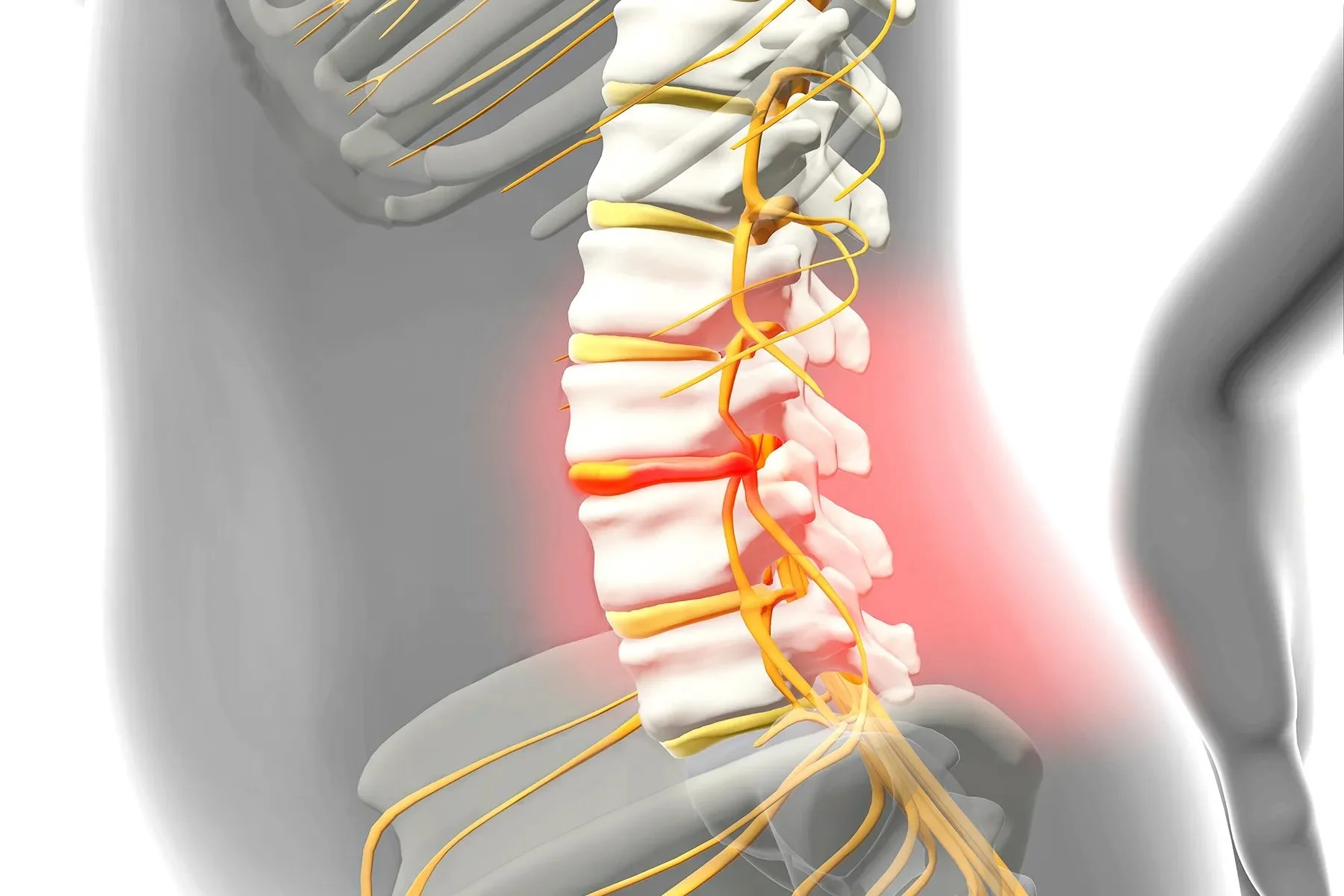Herniated Discs: The Myths, The Truth, And Why It’s Not the End of the World
By: Kelsie Mazur, DPT
Let’s break it down. I can really sit on the herniated disc soap box all day. The main take away of this blog post: Herniated Discs are NOT THE END OF THE WORLD, they’re actually quite common and respond amazingly to physical therapy… with the right physical therapist, that is.
What Is a Herniated Disc?
Your spine is made up of bones called vertebrae and between each of those bones is a disc. Think of these discs like small cushions or shock absorbers. They help your spine move, bend, and twist smoothly. A herniated disc happens when the soft inner part of the disc pushes out through the tougher outer layer. Kind of like jelly squeezing out of a donut. This can sometimes irritate nearby nerves and cause symptoms like:
• Back or neck pain
• Numbness or tingling
• Shooting pain down your arm or leg
But here’s the truth most people don’t hear: herniated discs are common, treatable and often get better without surgery.
Why Do They Happen?
There’s no single cause, but some common reasons include:
• Repetitive strain, like poor lifting habits or long hours of sitting
• Natural aging, as discs wear down over time
• Sudden injury, although this is less common than people think
Herniated discs don’t just happen to “old” people or “unfit” people. They happen to parents lifting kids, parents lifting weights, office workers hunched over laptops. Athletes. Nurses. Hairdressers. Movers. Anyone. It’s not a personal failure, it’s a mechanical issue…..and a manageable one. This is amazing news!
What Most People Do That Makes It Worse
Here’s the part that breaks my heart and drives me literally INSANE!!!! Someone gets diagnosed with a herniated disc and they’re told to be careful or avoid bending, lifting, or twisting. So they stop moving. They avoid anything that might hurt. They live in fear of making it worse.
That movement avoidance is often the worst thing you can do.
Lack of movement leads to more stiffness, more weakness, and more fear. And the longer you stay still, the harder it becomes to feel confident in your body again. And you're quite literally living in physical pain and psychological turmoil.
What You Should Do Instead: See a Physical Therapist
Doctors of Physical Therapy are movement specialists. Seeing a physical therapist should be the first line of defense for a herniated disc because we are specifically trained to assess movement, restore function, and reduce pain without the use of medications or invasive procedures (cough cough disectomies, epidural injections). A herniated disc often responds well to conservative care, especially when that care is focused on movement: something physical therapists specialize in. We don’t just treat the symptoms; we look at the whole picture: posture, strength, mobility, daily habits, and movement patterns. With a tailored plan that includes gentle exercises, body mechanics education, and progressive strengthening, we help reduce pressure on the irritated nerves, restore confidence in movement, and prevent future flare-ups. Unlike passive treatments that offer temporary relief, physical therapy empowers you with long-term tools for healing. It’s safe, evidence-based, and highly effective, often allowing people to avoid unnecessary imaging, medications, or surgery altogether.
To break this down Doctors of Physical Therapy help you:
• Understand your diagnosis
• Learn what movements are safe
• Rebuild strength and confidence
• Get back to doing the things you love
We don’t just hand you a list of things to avoid. We guide you toward what you can do and show you how to do it well. Recovery is not about rest. It’s about the right kind of movement, at the right pace, with the right support.
The Takeaway
A herniated disc is not a life sentence. It’s not the end of your story. It’s a challenge, but one you can absolutely overcome.
Don’t wait. Don’t avoid. Don’t settle for fear.
See a physical therapist. Move your body. Take back control of your recovery.
You’ve got this.
Let’s chat! Book an assessment and let’s get you back to feeling good in your body.
No referrals, no waiting, just answers. Did you know that we offer free 1-on-1 injury screens? Wattage Physical Therapy will take an in depth look at your ergonomics, posture, muscle tone, muscle weaknesses, and movement patterns to create a plan for YOU. If this article intrigues you, you can directly email me, Kelsie at Kelsie@wattagept.com. I would be happy to help you start the process of living a life free from pain.

